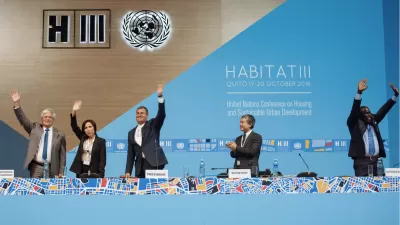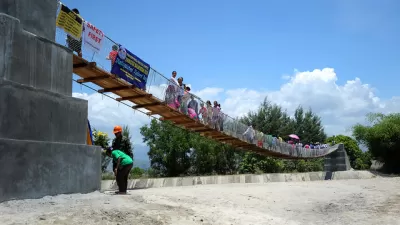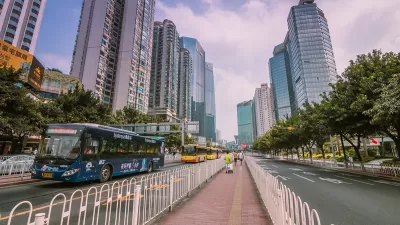The nation of Iraq is building itself anew after the last of the US troops evacuated six months ago, but experts are saying that their wealth, which has created an invasion of shopping malls around the country, is subsidizing the public agenda.
Oil production has given the country a surplus of wealth, but the country's private sector continues to suffer from malnourishment. Instead of financing new businesses and supporting the build-out of a private sector, which is virtually non-existent in the country, the accumulation of wealth has been given the task of financing the government work force, which currently employs about one-third of the nation's population. Another beneficiary of this increased revenue? Super malls. "'Basically, Iraq is trying to build a consumer society, not on state capitalism like in China, but on socialism,' said Marie-Hélène Bricknell, the World Bank's representative in Iraq."
"Given the statist mentality of most top Iraqi officials and widespread corruption," writes Arango, "diplomats are generally pessimistic that the expected boom in government revenues will be used either to help develop a private sector or to pay for an ambitious public works program - something the country, where 40 percent of the population still lacks access to safe drinking water, desperately needs. Instead, experts worry it will finance more of what Iraq already has: corruption and a huge government work force."
This increasingly skewed spread of wealth essentially robs the nation from the ability to support itself, by not providing basic needs and services or nourishing a self-sustaining working class. "Building a consumer society on top of nothing is like building a bubble that will burst in the future," Ms. Bricknell said. With the shopping malls, she said, "you are putting a veneer over a rotting core, basically."
Arango, sensing a storm brewing ahead, is not optimistic for future conditions in Iraq, and claims that history may be repeating itself. "In 'The Modern History of Iraq,' he writes, "the American historian Phebe Marr described a similar trajectory in the 1970s when, she wrote, 'the era of prosperity rapidly created a consumer society dependent on government employment.'"
FULL STORY: Oil Wealth Returning, Iraq Sees Malls Rise

Alabama: Trump Terminates Settlements for Black Communities Harmed By Raw Sewage
Trump deemed the landmark civil rights agreement “illegal DEI and environmental justice policy.”

Study: Maui’s Plan to Convert Vacation Rentals to Long-Term Housing Could Cause Nearly $1 Billion Economic Loss
The plan would reduce visitor accommodation by 25% resulting in 1,900 jobs lost.

Planetizen Federal Action Tracker
A weekly monitor of how Trump’s orders and actions are impacting planners and planning in America.

Wind Energy on the Rise Despite Federal Policy Reversal
The Trump administration is revoking federal support for renewable energy, but demand for new projects continues unabated.

Passengers Flock to Caltrain After Electrification
The new electric trains are running faster and more reliably, leading to strong ridership growth on the Bay Area rail system.

Texas Churches Rally Behind ‘Yes in God’s Back Yard’ Legislation
Religious leaders want the state to reduce zoning regulations to streamline leasing church-owned land to housing developers.
Urban Design for Planners 1: Software Tools
This six-course series explores essential urban design concepts using open source software and equips planners with the tools they need to participate fully in the urban design process.
Planning for Universal Design
Learn the tools for implementing Universal Design in planning regulations.
Caltrans
Smith Gee Studio
Institute for Housing and Urban Development Studies (IHS)
City of Grandview
Harvard GSD Executive Education
Toledo-Lucas County Plan Commissions
Salt Lake City
NYU Wagner Graduate School of Public Service





























